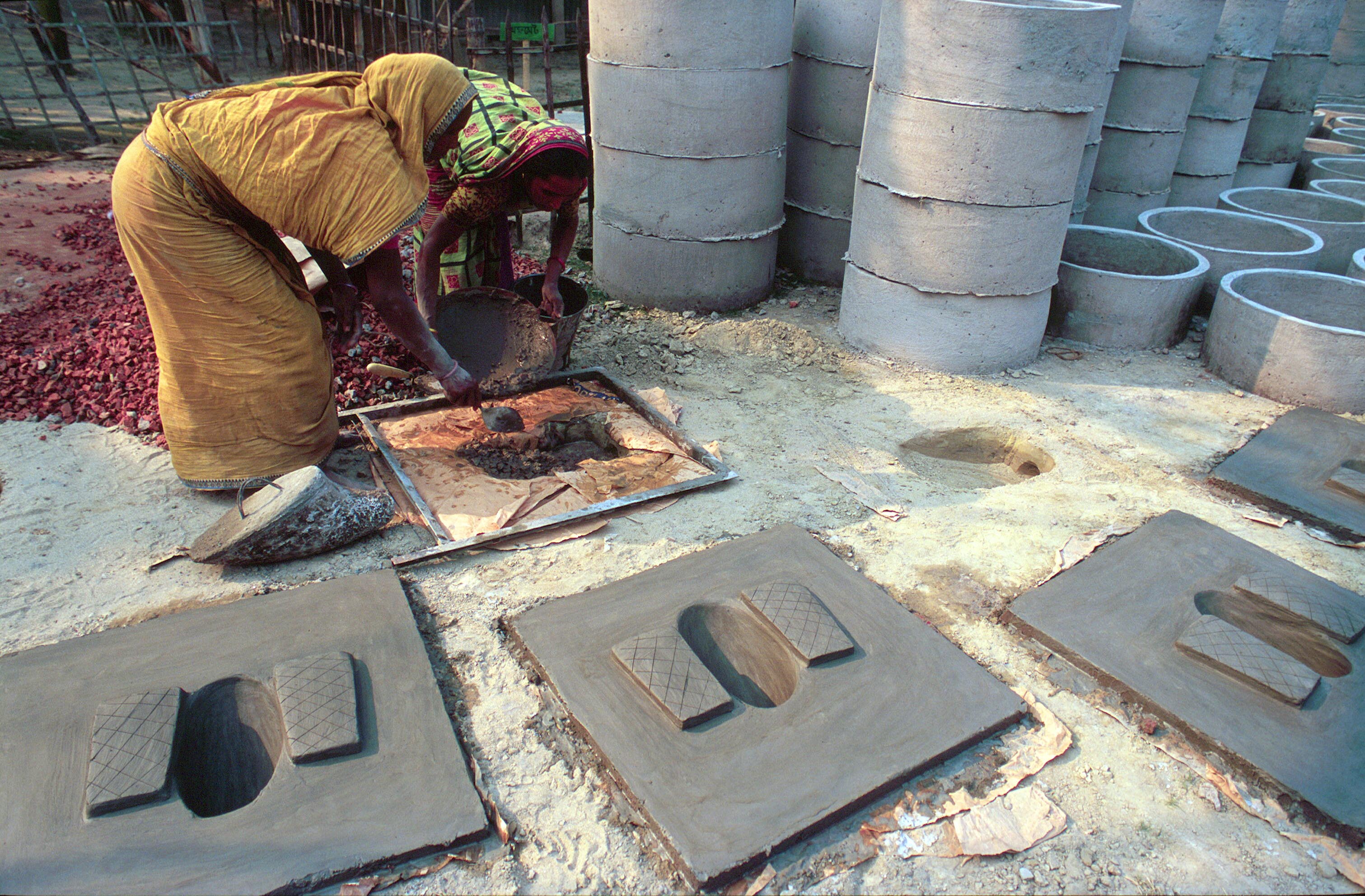Sanitation: Not Just More, But Better
|

Women producing latrine slabs in Bangladesh. Photo credit: WaterAid / Abir Abdullah
What would you do if “nature called” and you had no safe place to relieve yourself? What if you didn't have a bathroom to run to in your moment of need, no privacy, no toilet to flush away your waste? 2.6 billion people face this dilemma every day. The United States is one of the leading donors to safe drinking water, sanitation and hygiene (WASH), working to fill this critical gap in basic services and save lives in the process. Yet, U.S. investments—and those of all governments—must be improved to ensure those 2.6 billion people are reached. Some new analysis gives us insight into just how important it is to continuing getting smarter with our WASH investments.
First, let's remind ourselves of the problems caused by not having sanitation. People living without the luxury of proper flush toilets—or even a basic pit latrine—must constantly confront the humiliating and dangerous challenge of relieving themselves in public and unsafe places. This waste contaminates water sources, food, and people's hands, which leads to a host of serious illnesses. These include fatal diarrheal diseases, the second-leading killer of children under five in the world. That's 2.4 million children dying ever year from totally preventable illnesses.
Poor health in turn has a negative impact on economic development: Sick children are unable to attend school and develop skills to increase their productivity later in life; sick adults are unable to work. In fact, a lack of water and sanitation is estimated to cost sub-Saharan African countries 5% of their GDP every year—a loss of $47.7 billion in 2009 alone! In India, $53.8 billion was lost in 2006 because governments haven't prioritized these basic programs. Bottom line: poor sanitation keeps people trapped in poverty.
Despite such obvious reasons to prioritize sanitation, its Millennium Development Goal (MDG) target is being neglected by both aid-receiving governments and donor governments. Sub-Saharan Africa is not projected to reach the health and sanitation target until 2076 unless the amount of investment and the political will for meeting the human rights to water and sanitation significantly increase.
So for World Toilet Day, WaterAid is launching a new report, Off-track off-target: Why investment in water, sanitation and hygiene is not reaching those who need it most, which examines why progress in the water, sanitation and hygiene (WASH) sector is so slow and uneven. Our recommendations include:
- donor countries increasing funding to WASH, and to all international aid, since each sector depends on the others for success;
- better analysis of the WASH-poor communities to ensure money is going to the people most in need, and for whom WASH access will have the greatest impact; and
- better integrated programs, where WASH is built into other sectors, like health, and vice versa, to make sure we get the biggest bang for our buck—and are doing things the way we know they are most effective.
For the most part, our recommendations are about better implementing US law, and passing the Water for the World Act to address those reforms that are most important. According to a recent poll, Americans choose safe drinking water and sanitation as their top priority for US support of international development, suggesting ample support for USAID doing more and doing it better. USAID has already engaged in commendable reform efforts, with an eye toward better use of taxpayer dollars and greater impact in its mission to save lives and reduce poverty. These ongoing reform efforts, along with US law requiring smart WASH investments, put us on the right path do make WASH a hallmark of effective aid. And of course, to save lives. After all, what better use of public funds is there than a return of $8 in saved health care costs and increased economic productivity for every $1 invested in WASH?
By placing a heavy emphasis on WASH across the US development agenda, we can make significant progress towards reducing the staggeringly high death toll associated with poor sanitation, and in turn positively affect the economic growth of developing countries. Remember, sanitation is the most neglected MDG. So, in honor of World Toilet Day, let's recommit ourselves to meeting that promise—not just because we've agreed to it, but because it's a matter of basic human dignity and fundamental human need. We are already doing so much. It's time to do it better.
-- Lisa Schechtman, WaterAid
For more information:
-- Saturday, November 19, is World Toilet Day! Celebrate by helping us share our new video. If we can't talk about deadly diarrhea, we can't defeat it.














